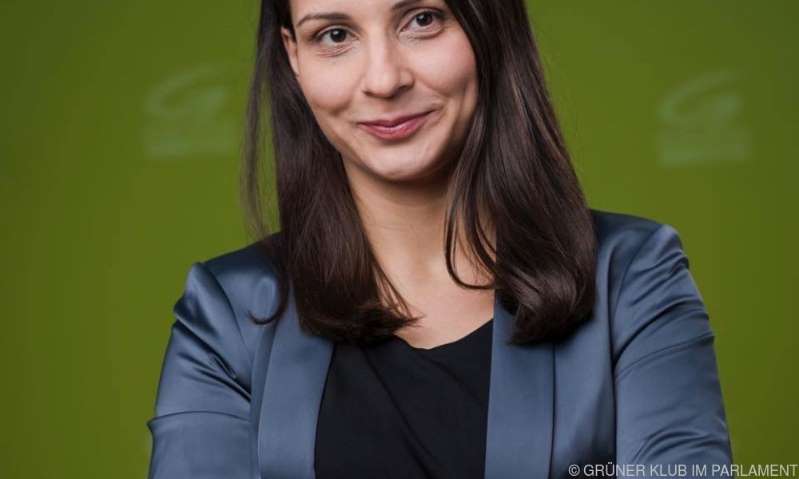The approaches of the governing parties are also different in women's politics: ÖVP women's minister Susanne Raab announced on the occasion of International Women's Day tomorrow, Monday, that she is planning special funding of 1.3 million euros to allow women to work in better-paid STEM professions inspire and increase their financial literacy. The Green woman boss Meri Disoski sees mandatory income transparency for companies as the most important measure against the wage gap.

PICTURED: GREEN CLUB IN PARLIAMENT
In the APA interview, Minister for Women Raab named protection against violence and specific labor market subsidies for women as further focal points – in addition to promoting financial literacy – in order to get them out of the massive rise in corona-related unemployment. In the corona crisis, the women had “done superhuman”, now you have to be careful that pushing women back into the domestic sphere during the lockdowns does not lead to solidified structures.
With Labor Minister Martin Kocher (ÖVP) she evaluated where women need help on the labor market and ensured “disproportionate support” for measures in the labor market. But women are also supported by keeping schools open. In addition, the government has increased corona aid in the family and social area, the family hardship fund was increased by 50 million euros and extended until June.
Raab expects an enormous improvement in terms of pensions from the automatic pension splitting, which is being worked out. The government is striving to further expand childcare, but women should decide for themselves whether they want to get back to work faster and stay at home longer.
Raab names protection against violence as a particularly important focus of her work. She has therefore invested a large part of the women's budget in this area. This year, she wants to increase the funding for women and girls' counseling centers, which has already been increased by twelve percent in 2020, by three percent – and an initiative against cyber violence in couple relationships is planned. Since the outbreak of the pandemic, the entry and approach bans have been at a “consistently high level”. Around 1,000 cases are recorded per month, “with a high number of unreported cases behind this”.
The governing parties are currently negotiating a larger package – which the Greens believe must also include mandatory income transparency. From a size of 35 employees, companies should disclose in which position how much is earned in order to close the wage gap and prevent old-age poverty, demanded the Green woman boss and vice club chairwoman Disoski in an APA interview. Previous initiatives have failed on the ÖVP economic wing. But she “hope that we can break this concrete policy”.
The EU Commission presented a proposal this week that would oblige employers with 250 or more employees to regularly disclose the wage difference between women and men. Disoski wants to orient itself towards Denmark: With the wage transparency for 35 employees or more, the gender pay gap has fallen by more than seven percent after just one year.
The Greens also disagree with the ÖVP when it comes to the pension splitting, which is also under negotiation: Disoski is pushing for a voluntary splitting for all couples. In any case, she wants a “total package” because “the real problem doesn't just start in the pension”.
When asked Disoski, she “naturally regretted the fact that the Minister for Women was not asked by the Greens but by the ÖVP.” “But regret is not a political category.” Feminist women's politics can also be promoted in this way, “and we'll do that”. The higher women's budget, the strengthening of protection against violence, the legislative package against hatred on the Internet or the increase in the minimum pension can be attributed to the government activities of the Greens.
The SPÖ is dissatisfied with the government's policy on women. Women’s spokeswoman Gabriele Heinisch-Hosek presented the coalition and “first and foremost” Minister for Women Raab Sonntag by broadcasting “nice speeches”. But that does not help a single woman in the worst crisis since 1945 – when unemployment and the associated loss of income would “push women to their limits”. They are particularly hard hit – after all, unemployment among women has increased significantly more than among men as a result of the Corona crisis. Heinisch-Hosek criticized the government as “watching inactive” – and demanded a special women's stimulus package in anticipation of tomorrow's special women's day meeting of the National Council.
No big steps were taken in the past year with regard to the political influence of women: the proportion of women in the federal government (46.7 percent without state secretaries) and in the state governments (39.7 percent) has fallen slightly. In the National Council, on the other hand, there is a tiny plus (to 39.9 percent) and in the state parliaments, the proportion of women mandatars has risen from 31.8 to 35.7 percent, as calculated by Werner Zögernitz from the Institute for Parliamentarism and Democracy. The turquoise-green federal government consisted of more than half (53.3 percent) of women in the previous year – but because Martin Kocher (both ÖVP) became Labor Minister in January instead of Christine Aschbacher, who resigned, the proportion fell below the 50 mark again.

